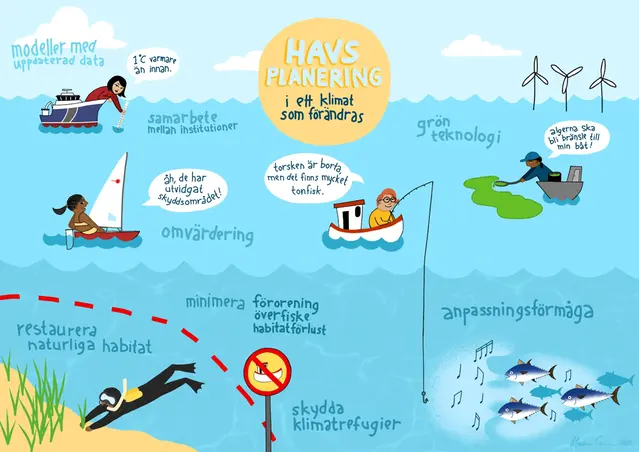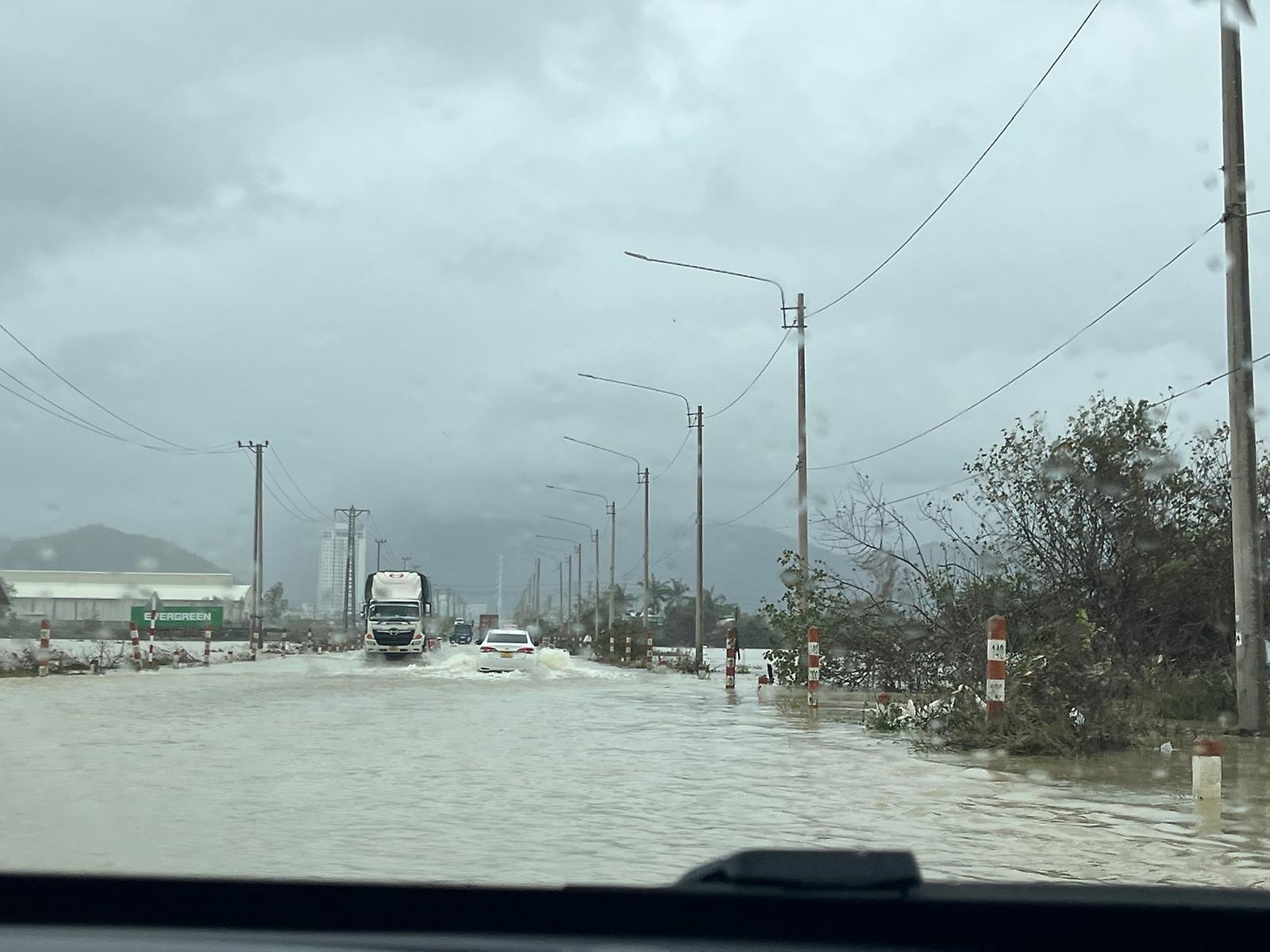Winner of the ClimeMarine Art Contest: creative illustration connecting Marine Spatial Planning and Climate Change
We can proudly present the winner of the ClimeMarine art contest: Malva Crona from Malungs folkhögskola, with a cartoon featuring various aspects of Marine Spatial Planning and climate change.
From 8 June to 31 August, students from Swedish high schools and universities could enter an art contest organised by the scientific research project ClimeMarine. A selection process was followed in September and we are now very pleased to announce the winner of the first prize of 25 000SEK.
“The contest winner is Malva Crona, 19-year old student from Malungs folkhögskola in the Dalarna County. Malva won the contest with a cartoon featuring various aspects of Marine Spatial Planning and Climate Change depicted in one image. Congratulations Malva!” said Emilie Breviere, international science coordinator at the SMHI oceanographic research unit.
 Zoom image
Zoom imageMalva Crona's winning illustration capturing Marine Spatial Planning and Climate Change.
“It was challenging to create a picture that was positive but serious, not minimizing the grave changes we are experiencing or probably will experience in the future. I also wanted to highlight that marine spatial planning in a changing climate is about more than just new technologies, still to be invented or massively scaled up.” Malva Crona said.
or this contest the performers were asked to create an easily accessible illustration presenting how climate change impacts Marine Spatial Planning in Sweden and how it should be taken into account. A total of 22 creations were received. Malva overall ranked the highest in the four criteria that the jury considered for their selection: theme, presentation, creativity and quality.
Communicating MSP
Additionally to the first prize, Malva’s illustration will be featured in a document proposing guidelines on how to understand the increased vulnerability of the marine resources due to climate change and how to include this information into robust decision-making. Those guidelines are a major outcome of the project ClimeMarine.
The primary goal of organising this contest was to reach out to students, through art-making and creative communication, ClimeMarine was hoping that this target audience group would learn about climate change and ocean issues and become advocates for environmental actions.
ClimeMarine is a Formas-funded project that promotes ecosystem-based management of the Swedish seas with climate change considerations through close contact with stakeholders and decision-makers.


